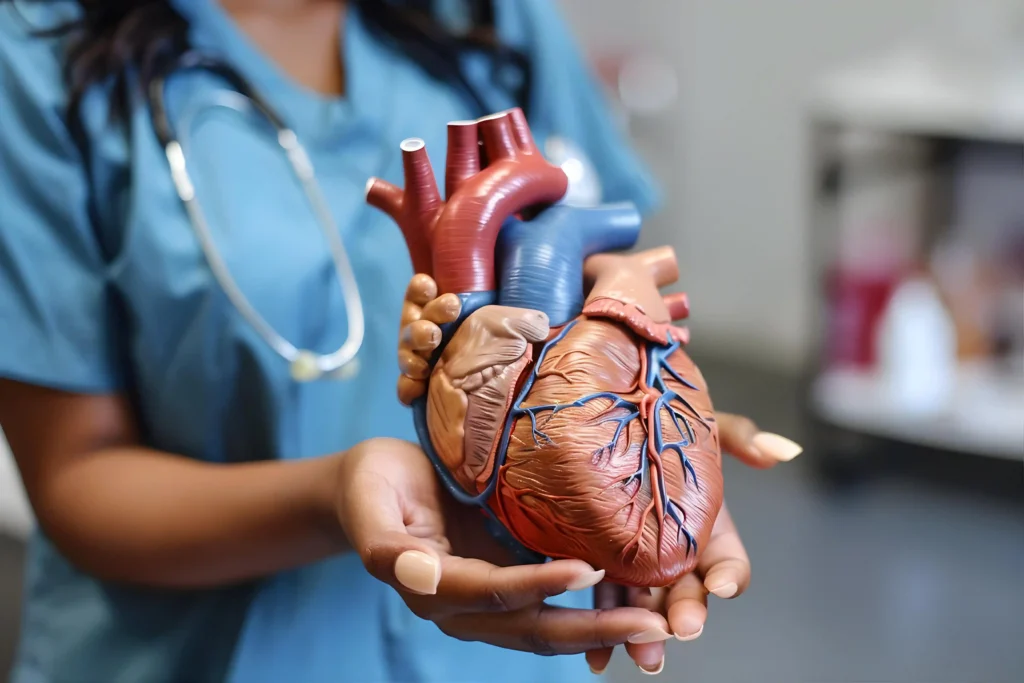Cardiology care for seniors: Specialized heart strategies for aging adults
Cardiology care for seniors: Specialized heart strategies for aging adults
Blog Article
Recognizing the Value of Cardiology in Modern Healthcare Providers
Cardiology plays an essential duty in contemporary medical care, especially as cardiovascular disease remains to be the leading reason for mortality worldwide. Breakthroughs in diagnostics and treatment have actually transformed person treatment, allowing earlier interventions and improved results. The shift in the direction of precautionary cardiology equips individuals to manage their health and wellness proactively. As innovation remains to develop, the combination of cutting-edge solutions may additionally redefine cardiology's influence on public health, triggering a better assessment of arising fads and their ramifications.
The Prevalence of Cardiovascular Disease and Its Influence On Public Wellness
Although cardiovascular disease remains the leading reason of fatality worldwide, its influence expands far past specific clients to impact public health systems and economic climates. The high frequency of heart problem puts a considerable stress on medical care sources, requiring increased funding for therapy, rehabilitation, and prevention programs. Public wellness efforts must address danger variables such as weight problems, smoking, and sedentary way of lives, which add considerably to the climbing occurrence of heart conditions.Moreover, the financial concern connected with heart condition is tremendous, including not only direct clinical costs however additionally indirect costs connected to shed productivity and premature mortality. Neighborhoods encounter challenges in taking care of these expenses, usually causing differences in healthcare access and outcomes. As the populace ages and lifestyle-related threats remain to intensify, the necessity for reliable cardiology treatments comes to be extremely important. As a result, attending to heart problem is not just an issue of individual wellness but also a vital public health priority.
Developments in Cardiac Diagnostics and Imaging Techniques
Current improvements in heart diagnostics and imaging strategies have actually revolutionized the area of cardiology, boosting the ability to keep an eye on and find heart conditions. Techniques such as heart MRI, CT angiography, and echocardiography have actually come to be significantly innovative, supplying comprehensive photos of heart frameworks and functions. These modalities enable the early recognition of problems like coronary artery condition, heart failing, and valvular disorders.Moreover, improvements in non-invasive diagnostics, such as wearable innovation and remote tracking gadgets, have actually equipped individuals and doctor. These tools facilitate real-time tracking of heart rhythms and various other necessary indicators, resulting in timely treatments. Additionally, expert system is being incorporated into imaging evaluation, improving precision and efficiency in medical diagnosis.
Innovations in Therapy Choices for Heart Issues
Recent innovations in cardiology have led to substantial developments in therapy options for heart disease. These consist of sophisticated medical strategies that improve step-by-step outcomes and arising medications that provide new methods for treatment. As the area evolves, these innovations play a vital role in boosting patient care and outcomes.
Advanced Surgical Techniques
Technologies in medical methods have actually transformed the landscape of cardiology, offering new hope for clients with heart conditions. Minimally intrusive treatments, such as catheter-based interventions, have greatly reduced healing times and healthcare facility remains. Techniques like robotic-assisted surgical treatment boost precision, enabling cosmetic surgeons to browse complicated anatomical frameworks with greater accuracy. Additionally, developments in imaging technology assist in real-time visualization throughout treatments, improving end results. Transcatheter aortic shutoff replacement (TAVR) exhibits a breakthrough in dealing with aortic stenosis, enabling valve substitute without open-heart surgical treatment. In addition, hybrid approaches that incorporate surgical and catheter-based methods supply tailored remedies for different cardiac concerns. These sophisticated surgical strategies not just enhance person safety yet likewise broaden therapy alternatives, emphasizing the essential function of development in modern cardiology methods.
Emerging Drugs and Treatments
As the landscape of cardiology remains to progress, arising drugs and therapies play a crucial function in boosting therapy alternatives for heart conditions. Innovations such as novel anticoagulants and progressed lipid-lowering representatives have actually changed the monitoring of cardio illness, substantially decreasing client morbidity and death. Additionally, the growth of gene therapies and regenerative medicine uses appealing avenues for treating conditions formerly regarded incurable. Medical tests are constantly revealing the efficacy of these therapies, pressing the borders of typical treatments. The combination of digital health and wellness innovations promotes customized medicine, allowing for tailored therapy strategies based on hereditary and way of living factors. Jointly, these developments highlight the vibrant nature of cardiology, boosting patient outcomes and redefining standards of care in contemporary health care.
The Duty of Preventive Cardiology in Person Treatment
Preventive cardiology plays an important function in person care by focusing on the identification of risk factors that contribute to heart problem. With way of life alteration approaches and very early discovery strategies, doctor can effectively decrease the occurrence of cardiovascular occasions - Dr Garcia. This proactive technique not only boosts client end results however also promotes long-term health and wellness
Threat Variable Recognition
While cardiovascular diseases remain a leading root cause of morbidity and death worldwide, efficient risk variable identification works as a foundation of preventative cardiology. Identifying risk factors such as hypertension, diabetes mellitus, family, and hyperlipidemia history is essential for very early treatment. Medical care experts utilize numerous screening techniques to examine these aspects, enabling for customized preventative actions. Additionally, understanding a patient's lifestyle choices, such as smoking and physical inactivity, better educates risk evaluations. This complete evaluation makes it possible for medical professionals to create personalized care strategies targeted at mitigating threats. By prioritizing danger variable recognition, healthcare systems can enhance individual outcomes and reduce the general concern of heart diseases, ultimately contributing to boosted public wellness strategies and resource appropriation.
Lifestyle Alteration Approaches
A wide range of studies highlights the important duty of way of living alteration techniques in decreasing heart disease risk. These approaches include dietary changes, enhanced exercise, smoking cigarettes cessation, and weight monitoring. By taking on a heart-healthy diet regimen abundant in fruits, veggies, entire grains, and lean healthy proteins, people can decrease cholesterol degrees and blood pressure. Normal exercise strengthens the heart and enhances overall cardiovascular health. Furthermore, giving up smoking cigarettes considerably decreases the danger of cardiovascular disease and boosts recuperation rates for those with existing conditions. Weight management even more adds to cardiovascular health by reducing various other threat aspects such as diabetes mellitus and hypertension. Implementing these lifestyle transforms not only advertises specific well-being yet likewise acts as a foundation of precautionary cardiology in person care.
Early Detection Techniques
Lifestyle alterations significantly add to minimizing cardiovascular disease risks, but they are most efficient when paired with early discovery techniques. Preventive cardiology emphasizes the significance of determining potential heart problems before they escalate into major problems. Strategies such as blood pressure surveillance, cholesterol testing, and advanced imaging innovations like echocardiograms play important functions in evaluating cardiovascular health. Biomarkers and hereditary screening also enhance the precision of early discovery, permitting for customized precautionary techniques. Regular heart threat evaluations encourage health care carriers to interfere proactively, potentially stopping cardiac arrest and strokes (Cardiology care). By integrating these early discovery methods into regular treatment, patients can benefit from timely lifestyle treatments visit their website and targeted treatments, ultimately boosting and boosting results lifestyle
Integrating Technology Into Cardiology Practices
As developments in technology remain to reshape numerous areas, the combination of ingenious devices and systems into cardiology practices has come to be crucial for enhancing client treatment and end results. Telemedicine systems permit cardiologists to keep an eye on patients remotely, enhancing accessibility to care while minimizing the worry on medical care centers. Wearable devices, such as smartwatches, enable constant heart price surveillance, signaling both people and medical professionals to potential concerns in real-time. Additionally, expert system (AI) is being utilized to analyze vast amounts of heart information, helping in early diagnosis and customized treatment strategies. Advanced imaging strategies, consisting of 3D echocardiography, improve visualization of heart structures, leading to more accurate interventions. Digital wellness records (EHRs) improve patient details monitoring, making sure that cardiologists have prompt accessibility to important data. With each other, these technical improvements are transforming cardiology, advertising positive management and boosted wellness outcomes for patients with cardio conditions.
The Value of Person Education and Engagement
Person education and involvement play a critical duty in the management of cardio health. By equipping individuals with knowledge regarding their problems, treatment choices, and way of living adjustments, health care providers equip people to take an active function in their treatment. This proactive method can cause boosted adherence to prescribed medicines, dietary adjustments, and workout regimens, eventually minimizing the threat of complications.Engagement also fosters a strong patient-provider connection, encouraging open communication and depend on. When people really feel informed and involved, they are most likely to voice worries and ask inquiries, which can result in much better scientific end results. In addition, instructional resources, such as workshops or digital platforms, can enhance understanding and promote self-management approaches. In general, focusing on client education and engagement is vital for enhancing cardiovascular health, improving quality of life, and reducing healthcare costs connected with cardiovascular conditions.
Future Fads in Cardiology and Their Potential Influence

Often Asked Inquiries
What Way Of Life Adjustments Can Lower Heart Problem Danger?
The current inquiry addresses way of living changes that can considerably minimize cardiovascular disease risk. Cardiologist near me. Taking on a balanced diet plan, taking part in normal physical task, preserving a healthy weight, handling anxiety, and staying clear of tobacco can significantly improve cardio health and wellness
Exactly How Can I Identify Early Signs of Heart Troubles?
Acknowledging early signs of heart issues involves monitoring symptoms such as upper body discomfort, lack of breath, tiredness, and uneven heartbeat. Prompt understanding of these indications can motivate necessary clinical analysis and treatment for much better end results.
What Are the Distinctions In Between Cardiologists and Heart Surgeons?
The distinctions in between cardiologists and heart cosmetic surgeons lie in their duties; cardiologists largely take care of and identify heart conditions via non-invasive techniques, while heart visit site specialists perform surgeries to correct structural heart concerns. Each plays an essential, distinct role.

Just how Typically Should I Obtain My Heart Health Checked?
The regularity of heart medical examination differs based upon specific risk elements. Normally, adults must undergo examinations every one to two years, while those with existing problems may need even more constant assessments as encouraged by medical care professionals.
What Role Does Genetics Play in Heart Problem Risk?
Genes greatly affects cardiovascular disease danger, with domestic patterns indicating inherited conditions. Specific genes can incline people to hypertension, cholesterol problems, and other cardio troubles, highlighting the relevance of hereditary screening in assessing heart health. Heart disease remains the leading reason of death worldwide, its effect prolongs far beyond specific people to affect public health systems and economic climates. Public wellness efforts have to deal with risk variables such as obesity, smoking, and inactive way of lives, which add significantly to the rising occurrence of heart conditions.Moreover, the financial problem connected with heart illness is immense, incorporating not only direct clinical costs but also indirect expenditures connected to shed performance and early death. Preventative cardiology plays an important function in client care by concentrating on the recognition read the article of risk elements that add to heart condition. Artificial knowledge (AI) and device learning are enhancing diagnostics and client monitoring, making it possible for very early discovery of heart illness. The differences in between cardiologists and cardiac specialists exist in their roles; cardiologists mostly take care of and detect heart conditions via non-invasive methods, while heart cosmetic surgeons carry out surgical procedures to remedy structural heart issues.
Report this page